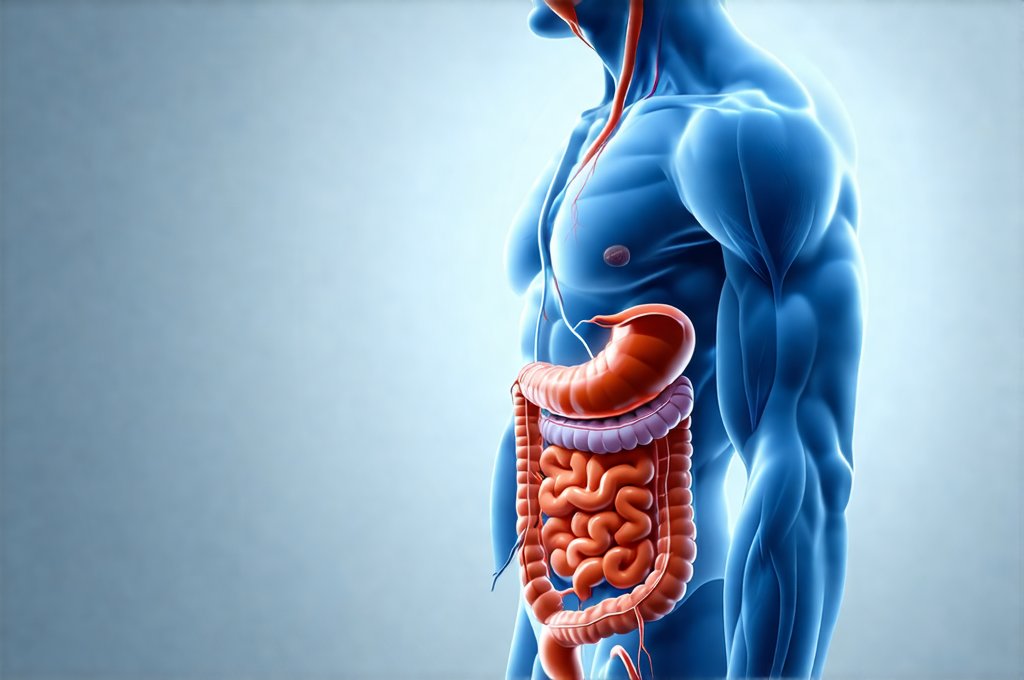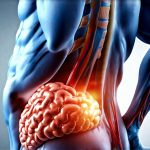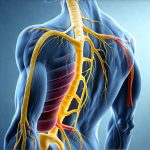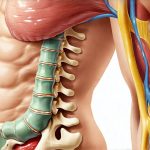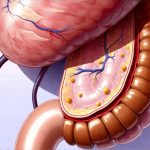The digestive system, often taken for granted until something goes amiss, is a remarkably complex network responsible for breaking down food, absorbing nutrients, and eliminating waste. We frequently associate digestive issues with diet – what we eat – but rarely consider the profound impact our musculoskeletal systems have on this process. Specifically, the core muscles – those surrounding the abdomen and lower back – play an unexpectedly vital role in supporting healthy digestion and minimizing discomfort like bloating and excessive gas. A weak or imbalanced core can contribute to a variety of digestive problems, hindering optimal function and leading to frustrating symptoms. Understanding this connection is the first step towards a more comfortable and efficient digestive experience.
Beyond simply providing structural support for the spine, your core muscles actively participate in creating intra-abdominal pressure – the gentle but essential force needed for proper bowel movements and effective digestion. This pressure helps move food through the digestive tract, supports organ function, and even assists with lymphatic drainage which is crucial for removing toxins. When core strength is compromised, this natural process becomes less efficient, leading to constipation, increased fermentation in the gut (and therefore more gas), and a general slowing down of digestive flow. It’s not just about “six-pack abs;” it’s about functional strength that supports the internal organs and their vital processes. If you suspect your reflux is impacting overall health, consider if chronic reflux impact your immune response.
The Core-Digestion Connection: A Deeper Dive
The relationship between core strength and digestion isn’t merely circumstantial; it’s rooted in anatomy and physiology. Consider that your abdominal muscles directly surround most of your digestive organs – stomach, small intestine, large intestine. These muscles aren’t just there for aesthetic purposes or lifting heavy objects. They actively contribute to the peristaltic movements (wave-like contractions) that propel food along the digestive tract. A weakened core means less effective peristalsis and a greater likelihood of undigested food lingering in the gut, leading to fermentation, gas production, and discomfort. Furthermore, a strong core supports proper posture which is essential for allowing adequate space for internal organs and avoiding compression that can impede function. Understanding how digestive balance might be reset through regular fasting could also prove helpful.
A dysfunctional core doesn’t necessarily mean lacking any muscle tone; it often means an imbalance between muscle groups. For example, tight hip flexors combined with weak abdominal muscles are incredibly common and create a forward tilt of the pelvis. This posture compresses the abdomen, restricts digestive movement, and puts undue stress on the lower back. Similarly, overdeveloped external obliques (the side abdominal muscles) without sufficient deep core engagement can lead to imbalances that negatively impact digestive function and contribute to bloating. True core strength is about balance and integration, not just isolated muscle development. Consider the impact of tight jeans on digestive pressure too!
Finally, the diaphragm – your primary breathing muscle – is intimately linked to core stability and digestive health. Proper diaphragmatic breathing (deep belly breathing) massages internal organs, promoting peristalsis and aiding in detoxification. A weak or shallow breathing pattern restricts this natural massage, contributing to sluggish digestion and increased gas. Stress and anxiety often lead to shallow breathing, further exacerbating these issues, creating a vicious cycle between mental state and digestive health.
How Core Weakness Manifests as Digestive Symptoms
The symptoms of core-related digestive issues can be surprisingly diverse, making them easy to misattribute to dietary factors or other conditions. Constipation is perhaps the most common manifestation; without adequate intra-abdominal pressure, it’s harder for the bowels to move waste efficiently. Bloating and excessive gas are also frequent complaints, stemming from increased fermentation due to slower digestive transit time. This can lead to feelings of fullness, discomfort, and even pain. Irritable Bowel Syndrome (IBS) symptoms can sometimes be aggravated by core weakness, although it’s important to emphasize that IBS is a complex condition with multiple contributing factors.
Beyond the obvious gastrointestinal symptoms, core weakness can contribute to lower back pain, which in turn can further exacerbate digestive issues due to altered posture and muscle tension around the abdomen. A feeling of sluggishness or fatigue can also be linked to impaired digestion and reduced nutrient absorption. It’s crucial to remember that these are often subtle indicators; you might not experience all of these symptoms at once, but a combination of several could signal a core-digestion connection worth exploring. The key is recognizing the potential link between physical posture/strength and seemingly unrelated digestive discomfort. If you find GERD affects your daily life, understanding reflux and ears might be helpful.
Moreover, breathing patterns play a significant role. Shallow chest breathing restricts diaphragmatic movement, hindering digestion and increasing stress levels. This can create a feedback loop where stress worsens digestion, which in turn contributes to more stress. It’s important to identify if your breathing is primarily from the chest or the diaphragm; learning to breathe deeply from the belly can have a profound impact on both digestive health and overall well-being.
Strengthening Your Core for Digestive Health
Addressing core weakness requires a holistic approach that goes beyond traditional abdominal exercises like crunches. While crunches can strengthen superficial abdominal muscles, they often fail to engage the deep core muscles crucial for digestive support. Instead, focus on functional movements that integrate core engagement with proper breathing and posture. Here are some effective strategies:
- Pilates: Excellent for developing core strength, flexibility, and body awareness. Pilates emphasizes controlled movements and precise muscle activation, targeting both superficial and deep core muscles.
- Yoga: Many yoga poses naturally engage the core while promoting relaxation and improving breathing patterns. Poses like boat pose (Navasana) and plank pose are particularly effective.
- Functional Exercises: Movements that mimic everyday activities – lifting, bending, twisting – with proper form are excellent for building real-world strength and stability.
Improving Breathing Patterns for Optimal Digestion
As mentioned earlier, diaphragmatic breathing is essential for digestive health. Here’s how to practice:
- Lie on your back with knees bent and feet flat on the floor.
- Place one hand on your chest and the other on your abdomen.
- Inhale deeply through your nose, focusing on expanding your abdomen (the hand on your abdomen should rise while the hand on your chest remains relatively still).
- Exhale slowly through your mouth, drawing your abdominal muscles inward.
- Repeat for 5-10 minutes daily.
Consistent practice will help strengthen your diaphragm and improve your breathing patterns, leading to better digestion and reduced stress levels. Mindful awareness during breathing is also key – pay attention to the sensation of your breath and how it affects your body.
Incorporating Movement & Lifestyle Adjustments
Beyond specific exercises and breathing techniques, incorporating regular movement into your daily routine is crucial for digestive health. Sedentary lifestyles contribute to sluggish digestion and weakened core muscles. Simple activities like walking, swimming, or cycling can significantly improve digestive function. Additionally:
- Stay Hydrated: Water helps move food through the digestive tract and prevents constipation.
- Manage Stress: Chronic stress negatively impacts digestion; find healthy ways to manage your stress levels, such as meditation, yoga, or spending time in nature.
- Mindful Eating: Pay attention to your body’s hunger and fullness cues, and eat slowly without distractions. This allows for better digestion and reduces the likelihood of overeating. Listen to your body; it’s often telling you what it needs. If GERD impacts your mental health, seeking support is important.
And lastly, be aware that travel affects digestive health too!

